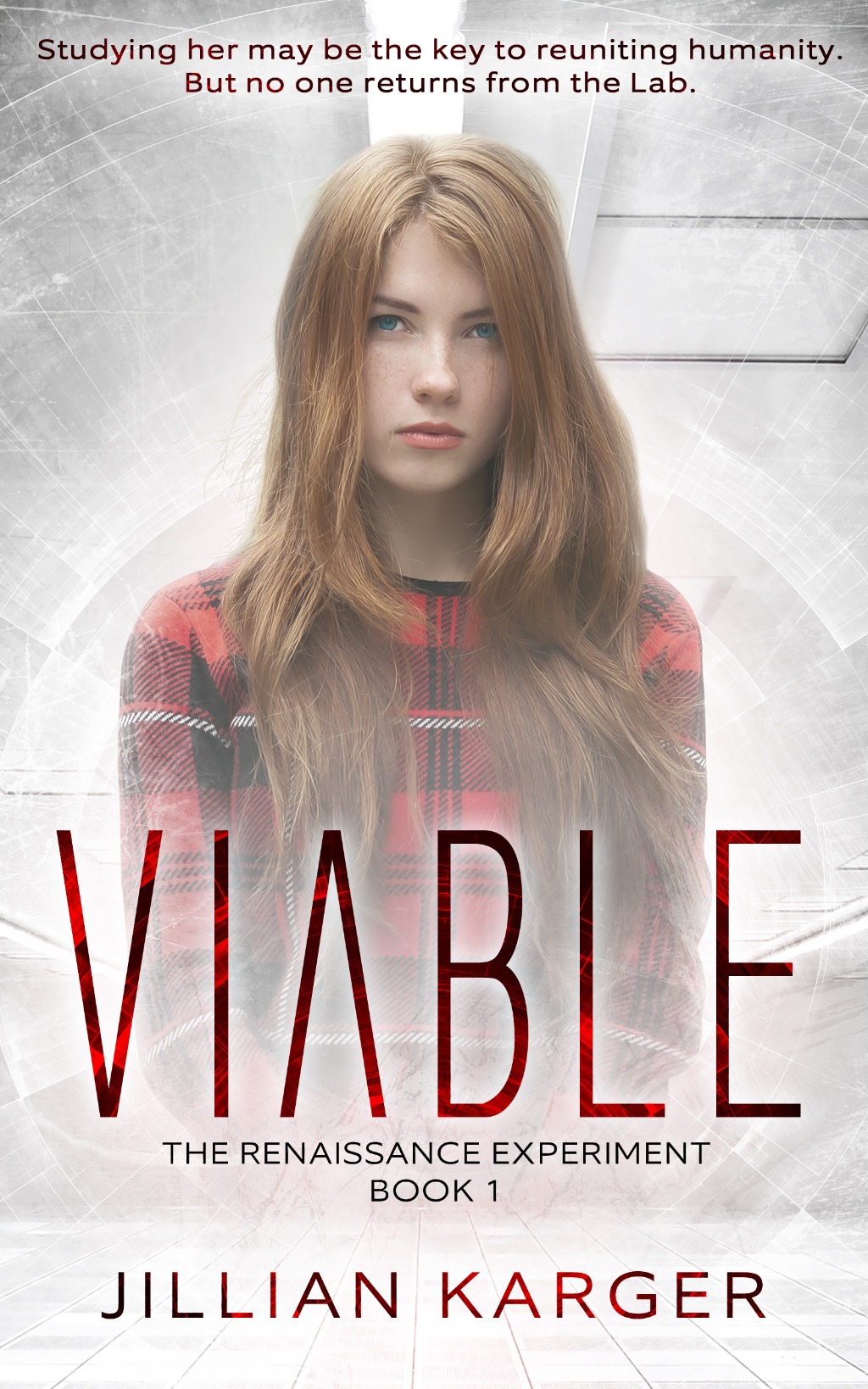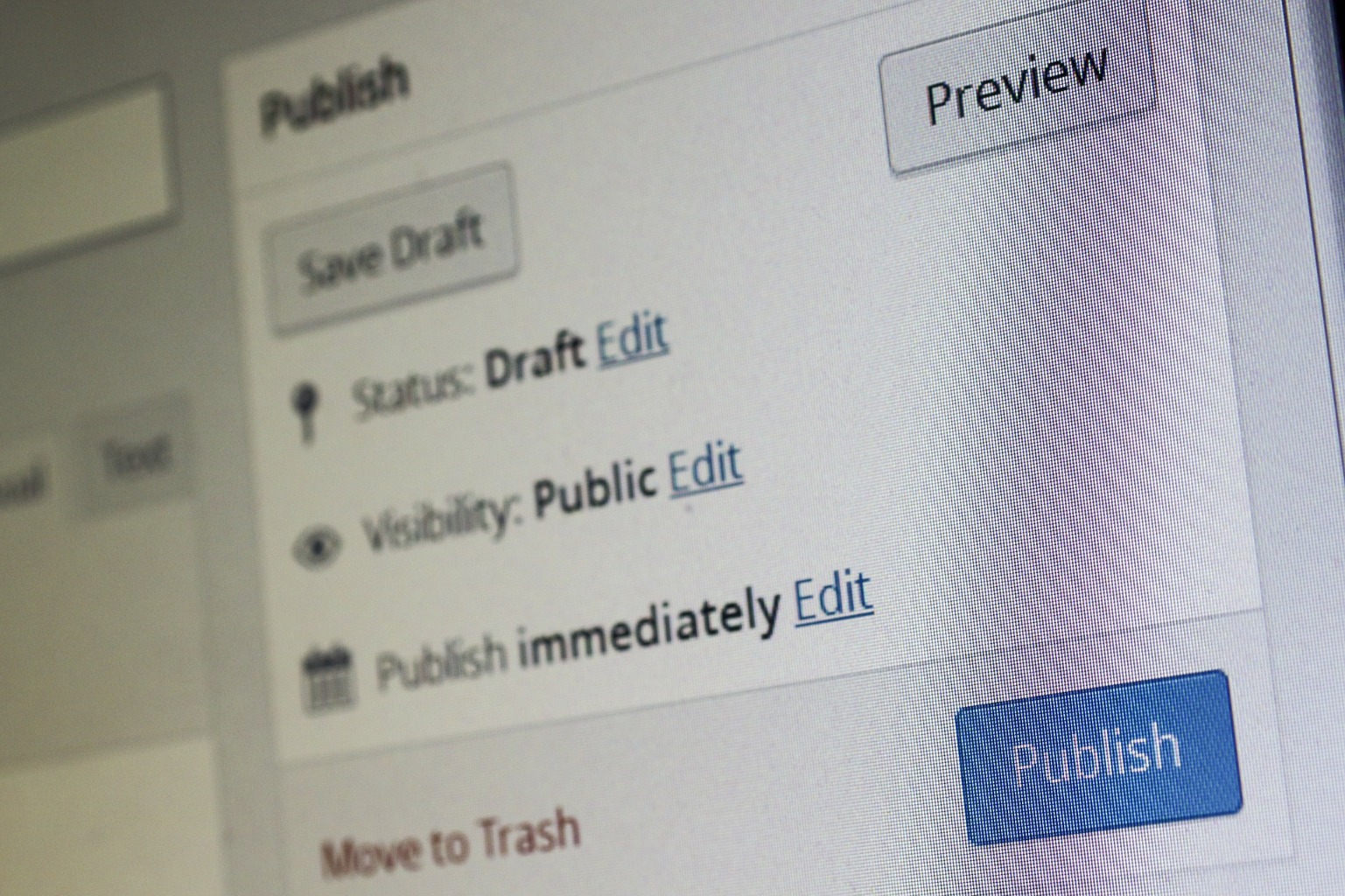While it is an exciting journey, figuring out how to get your sci-fi novel self-published online can be scary and overwhelming as well. I know that from experience. When I was just twenty-two years old, I started writing Viable, a dystopian story taking place many years in the future. It took me less than a year to complete the initial draft, but between multiple jobs and freelance writing and editing gigs, it took me several months of revising before I was able to polish that manuscript into something I felt was publish-worthy.
I barely knew anything about self-publishing back then. What I thought I did know painted self-publishing in a very unattractive light—it was what writers who weren’t good enough to be traditionally published did. There were successful self-published authors, of course, but they appeared to be the exceptions, not the rule. So I did what all my other writer friends were doing—I queried literary agents.

Heading Down the Wrong Road Before Finding the Right One
The first step of querying was to write my query letter. Though query letters should only be 300 words or less in total, I spent hours and hours trying to perfect it. I read blogs about querying, sample queries, and asked everyone I could think of to read my draft. Agents often base their entire decision of whether or not they want to read more on this letter, so it needed to be good.
Then I queried a handful of agents at a time. I got some early encouragement—a few well-established agents even requested my manuscript. But the market was inundated with dystopian novels after the Hunger Games craze, and no one wanted to take a risk on the genre at that point.
And for every response I got (manuscript request or no), several more agents never got back to me at all. I was working in the publishing industry at the time and knew that interns and assistants were sorting through heaps of letters a day and that agents often didn’t even end up seeing them.

Taking Some Time to Pause and Reflect
After a few months of the frustrating exercise of querying, I put my manuscript aside for a while. I started writing another book—my dark fantasy, Vita and the Monsters of Moorhouse—while I let the wounds of rejection heal. After a while, I came back to Viable and read it with new eyes. Between me and my fantastic boyfriend/editor, we were able to revise the book into a much tighter, more engaging story than it had been before.
But by this point, I was no longer interested in sending my book off to the gatekeepers for a second time. I had learned a lot more about self-publishing by then and found that far more indie authors achieve success than I initially realized. I also now knew that these authors enjoyed far greater creative and financial freedom than their traditionally published counterparts.
So I chose to self-publish.

Decisions, Decisions, Decisions
The first decision I had to make was which fiction platform I wanted to use to self-publish my sci-fi novel. In truth, I had actually started my self-publishing journey many years before. Back in high school, I published my epic fantasy novel, Unexpected Royalty, on FictionPress.com. That experience put me in touch with a group of readers whose support I wouldn’t trade for anything—it’s what made me think I might really be able to make it as a writer someday.
But I knew this wasn’t the type of site I wanted for Viable. I had posted Unexpected Royalty chapter by chapter as I wrote it and hadn’t made any money off it whatsoever as I wrote. Viable was a completed manuscript that had been extensively revised over several years, and one that I hoped to sell as both a paperback book and an ebook. So, I went with Amazon KDP. The publishing process on the site is very straightforward, and they even have a Create a Book guide that will take you step by step through to publication.
One of the first things I did on my road to self-publishing was writing the description of my novel. While I don’t have the fondest memories of querying agents, it did give me a leg up when it came to writing that description since your book description does the same thing a query is meant to do—draw the reader in, and don’t let go. With both of my published books, we went through several drafts of the synopsis before finally settling on one we were happy with.

Then my editor and I started brainstorming about what we wanted the cover to look like. I spent hours searching Google Images for pictures of women I felt looked like or captured the spirit of my protagonist, who we had decided would be on the cover. We later sent these images to our cover artist to help inform him of what we were looking for.
Viable also had a tag on the cover which required more time and revision:
“Studying her may be the key to reuniting humanity. But no one returns from the Lab.”
You would be shocked how much time and energy went into just those 16 words. But being concise actually takes far more care and precision the being verbose. As Blaise Pascal wrote, “I would have written a shorter letter, but I did not have the time.”

Hitting That Publish Button
After we had the book formatted and the cover designed by Ebook Launch, we did some research to figure out the best keywords for the book (terms readers might use to search for a book like yours, like “zombie apocalypse” or “sci-fi romance”). After that, it was just a matter of filling in the right info, uploading the print and ebook formatted manuscripts, and hitting that “Publish” button.
If this all sounds easier than it should be, it’s because it is. Don’t get me wrong—self-publishing was a lot of work. There was tons of research involved, and revising my book description over and over could get disheartening. Not to mention the seven years spent writing the book in the first place.
But I did it in the end, and now there’s a science fiction book out there with my name on it. I’ve had the chance to share my book with readers all over the world and make money doing it. If you’re hesitating about self-publishing your own sci-fi novel, I say you take the plunge. There are a lot of great sci-fi books right here on Fictionate.Me—check out this post to get more info on how to start your self-publishing journey today.